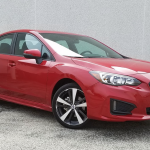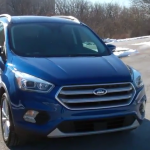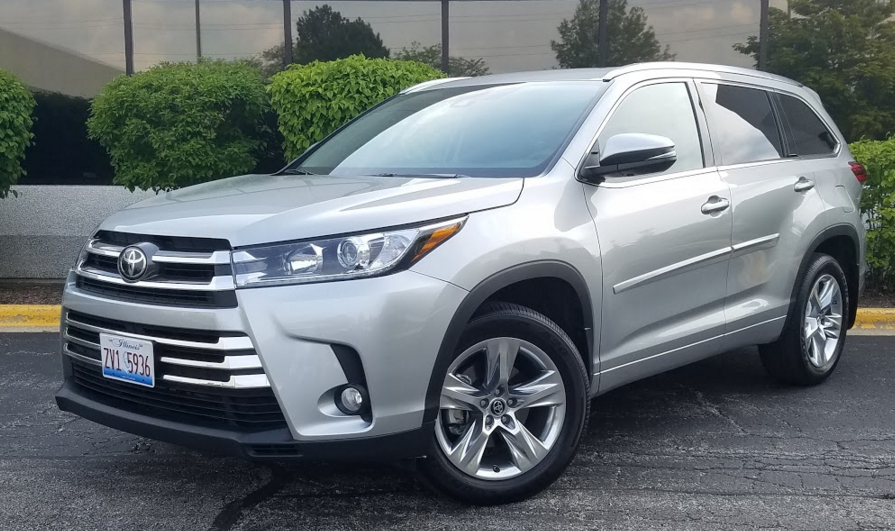
 2017 Toyota Highlander Limited AWD
2017 Toyota Highlander Limited AWD
Class: Midsize Crossover
Miles Driven: 479
Fuel Used: 21.0
Real-world fuel economy: 22.8 mpg
Driving mix: 35% city, 65% highway
| CG Report Card | |
|---|---|
| Room and Comfort | A |
| Power and Performance | A |
| Fit and Finish | B |
| Fuel Economy | B |
| Value | B+ |
| Report-card grades are derived from a consensus of test-driver evaluations. All grades are versus other vehicles in the same class. Value grade is for specific trim level evaluated, and may not reflect Consumer Guide's impressions of the entire model lineup. | |
| Big & Tall Comfort | |
| Big Guy | A |
| Tall Guy | A |
| Big & Tall comfort ratings are for front seats only. "Big" rating based on male tester weighing approximately 350 pounds, "Tall" rating based on 6'6"-tall male tester. | |
EPA-estimated fuel economy: 20/26/22 (city, highway, combined)
Base price: $43,140 (not including $940 destination charge)
Options on test car: Carpeted floor mats ($225), body side molding ($209)
Price as tested: $44,514
Quick Hits
The great: Available 8-passenger seating, interior storage, standard safety features
The Good: Driving dynamics, separate-opening back window
The not so good: Long reach to some right-side infotainment controls
More Highlander price and availability information
Rick Cotta
Can’t say I envy anyone shopping for a midsize crossover. It’s not that there aren’t any good choices; it’s that there are too many good choices. Heck, even the CG staff had a hard time deciding on a Best Buy. So we picked three.
One — quite appropriately — was the Toyota Highlander.
Long a fine choice in a midsize crossover, the Highlander ups the ante for 2017 with freshened styling, more power for V6 versions, an 8-speed automatic (replacing a 6-speed) in most models, a sportier new SE trim level, and expanded availability of the thrifty Hybrid version (now the only one offered in the class). Also, newly standard are valuable safety features that include forward collision warning and mitigation with pedestrian detection, lane-departure warning and mitigation, automatic high beams, and adaptive cruise control.
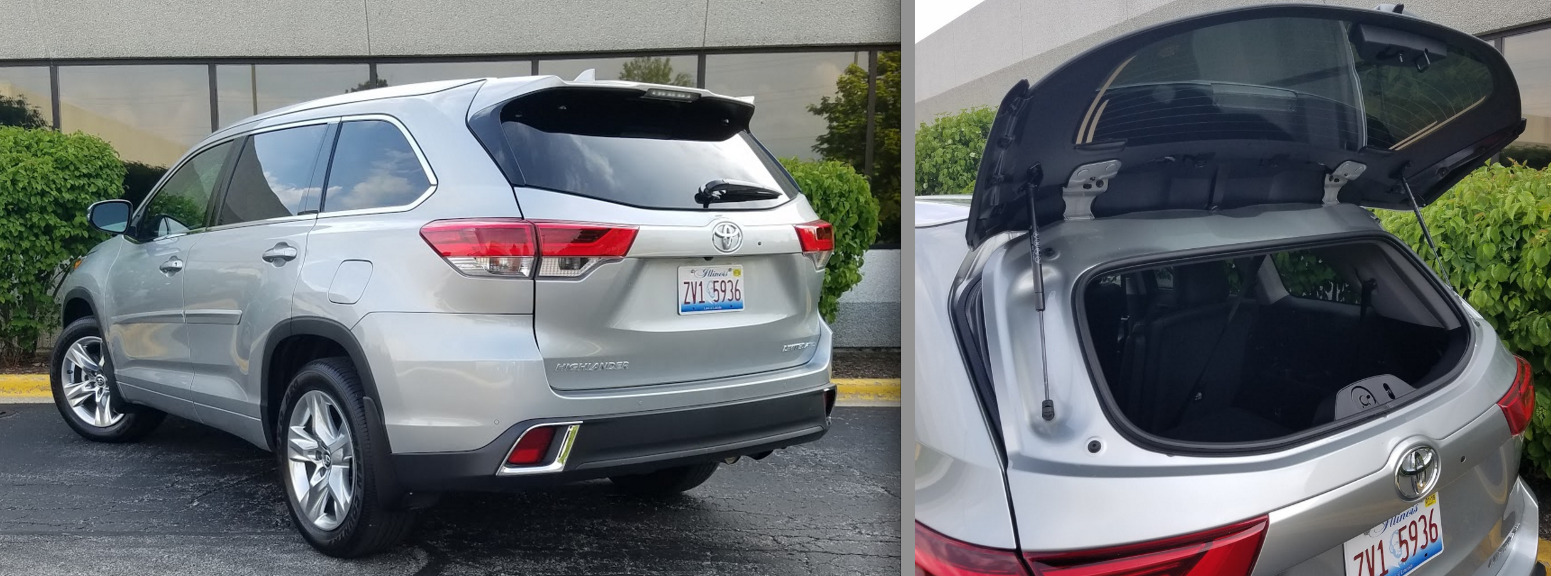
Though not necessarily exclusive features, some notable Highlander highlights include:
- Up to 8-passenger capacity (many 3-row crossovers only seat seven)
- Separate-opening window in the hatch lid (easier to open than the entire hatch)
- Class-exclusive Hybrid version that gets significantly better fuel economy in city driving
- Extensive list of standard high-tech safety features
- Great cabin storage
In the last two years, we’ve had the opportunity to test a mid-level XLE and an up-level Hybrid Limited, both in AWD form. This year, we tested the gas version of a Limited, also with AWD.
Test Drive: 2016 Honda Pilot Elite

For 2017, gas V6 Highlanders (which includes all but the base 4-cylinder LE) get a horsepower boost from 273 to 295, and also swap their 6-speed automatic for an 8-speed. The combination boosts EPA figures by 2 mpg to 20 city/26 highway/22 combined, and indeed, our 2017 tester averaged a significant 5 mpg better than the 2016 XLE tested, though with more highway miles.
Features added on the Limited (over the XLE) include LED headlights with Daytime Running Lights, puddle lamps, memory mirrors and driver seat, 19-inch wheels (vs 18s), JBL audio system, ventilated front seats, and rear-obstacle detection. It also has blind-spot and rear-cross-traffic alert, but those are also on the XLE.
Gas V6 models provide a strong full-throttle jump off the line, and the transmission executes fairly quick kickdowns for more passing power. The ride is comfortable, and handling is on par with the best in the class. Two long highway trips netted 25.4 mpg, just under the EPA’s 26-mpg highway rating.
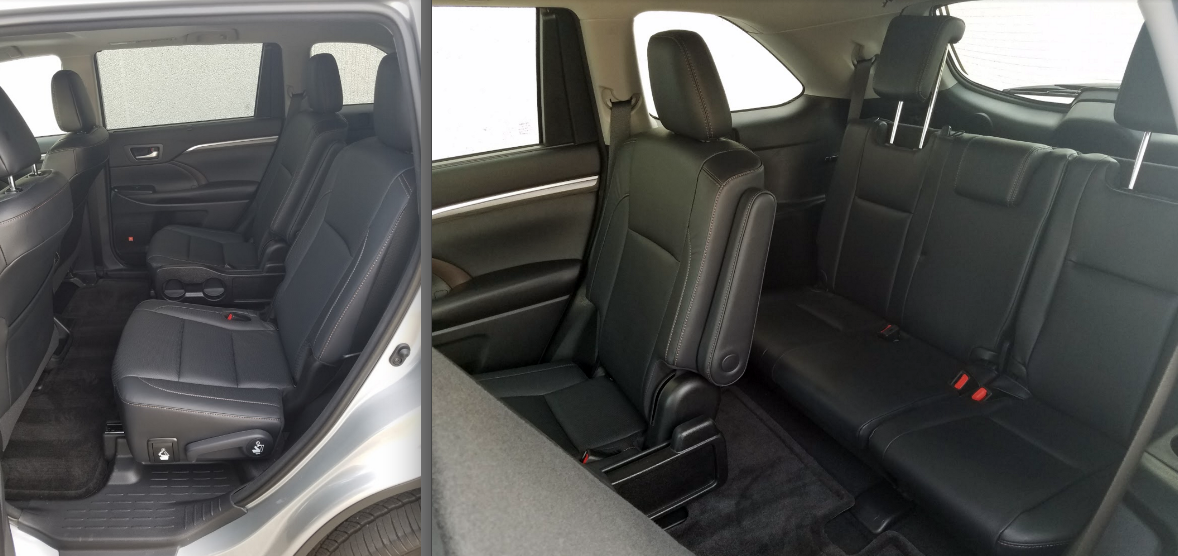
There’s fine passenger room in both the first and second rows, and though our test vehicle had 2nd-row buckets (for 7-passenger capacity) with a flip-up center tray, a center seat can be ordered, and anyone sitting there will have good foot space thanks to a flat floor. The second row slides fore and aft about six inches to allow balancing 2nd- and 3rd-row legroom, and average-size adults can sit in the third row if the second row is set no more than midway back. It’s a two-step process to slide the 2nd-row seat forward for access to the third row, but it can be done fairly easily with one hand and a little practice.
Test Drive: 2017 Hyundai Santa Fe Limited Ultimate
Visibility is quite good all around, and cabin materials are nice if not plush. Infotainment controls include volume and tuning knobs, but the latter is a long reach for the driver, as is the audio-source button, and the far side of the touchscreen is also a bit of a stretch. We were able to easily input destinations to the navigation system via voice commands.
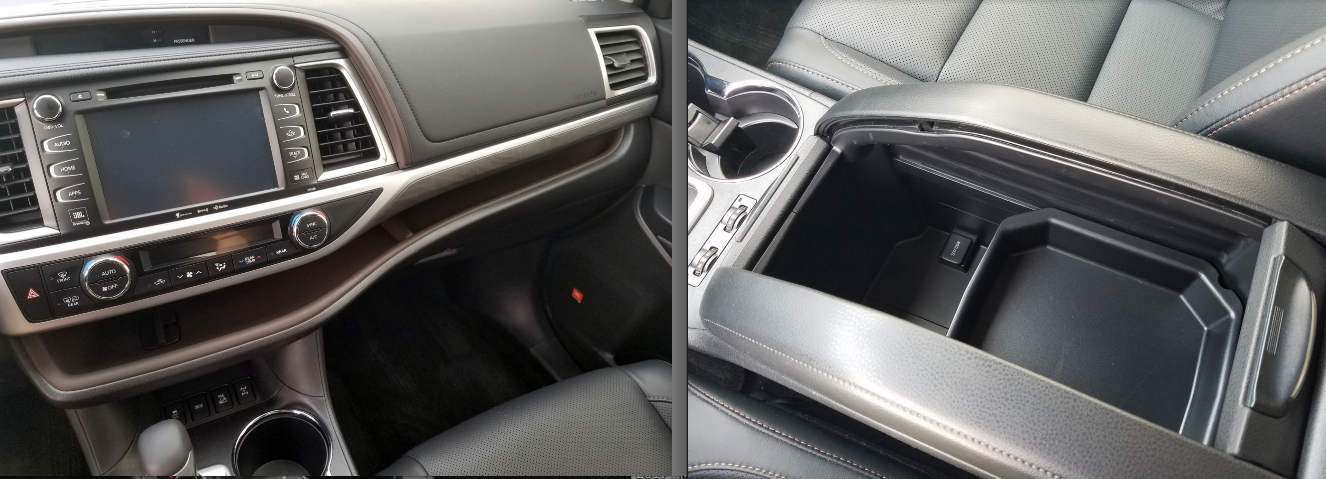
But the real star of the interior show is the available storage space. A large glovebox is augmented by a huge 2-door console box, a forward console tray under 12-volt, Aux, and three USB ports (two supplying 2.1 amps for charging), a left-side dash bin, and a wide under-dash tray with padded bottom.
Cargo space is also good in back, with the 2nd- and 3rd-row seats folding flat and level with the cargo floor. The flip-up back window is an unexpected convenience, as it’s easier to raise than the entire tailgate. It may also enable you to carry something like a lawnmower with its handle sticking out the window, but that’s probably not recommended.
Test Drive: 2017 Nissan Pathfinder Platinum
Although our Limited AWD’s $44,514 as-tested price may be a bit sobering, this upper trim level includes some very useful features, and a $3120 Platinum Package adds a few more. But most of the safety features are included in the XLE AWD, which starts at $40,940, making that, perhaps, the better bargain. But any of the V6 models, at least, continue to stand as solid Best Buys.
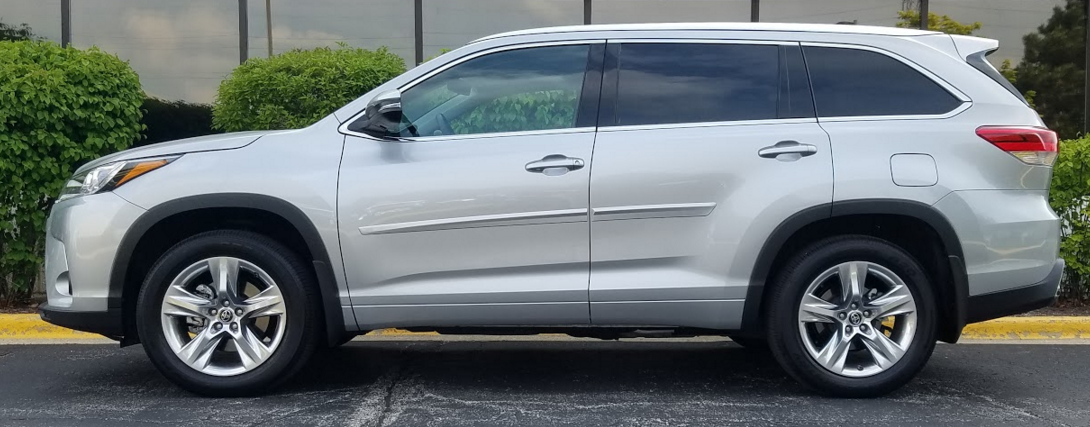
Test Drive: 2016 Ford Explorer Platinum

